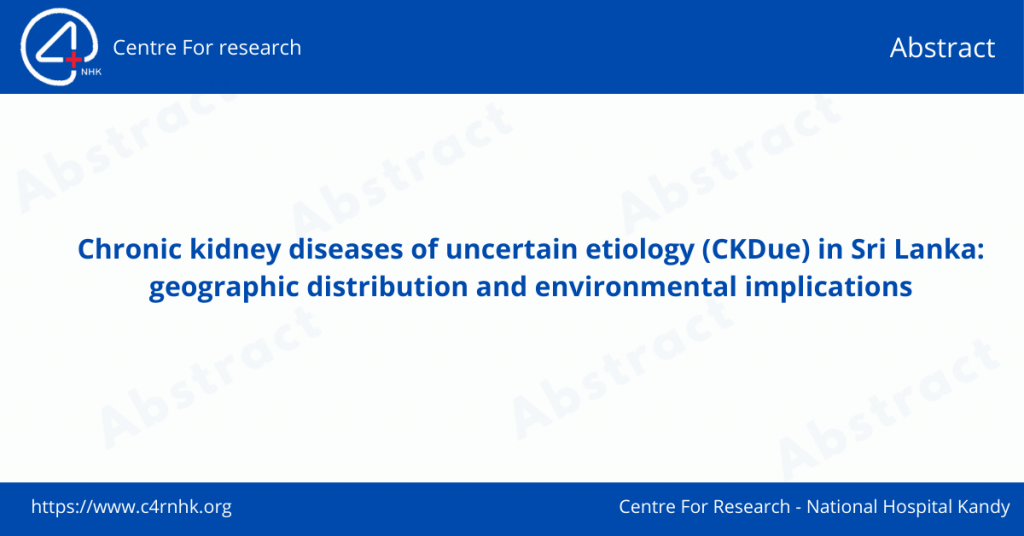Citation: Abdel Monem, R., Abdullah, W., Atallah, H., & Henedy, W. (2022). Effect of Designed Educational Nursing Intervention on Knowledge and Compliance to Therapeutic Regimen among Patients with Hemodialysis. Menoufia Nursing Journal, 7(2), 367-384. doi: 10.21608/menj.2022.272901
Introduction
The main aim of investigators in this study was to examine the effect of a designed educational nursing intervention on knowledge and compliance to therapeutic regimen among patients with haemodialysis (HD). This was a quasi-experimental research study carried out among HD units in Menoufia University and Shebin El-Kom teaching hospitals in Egypt. A consecutive sample of 100 adult patients on HD were assigned randomly and alternatively into two equal groups (study group; control group) and 50 patients for each group. The study group received the designed educational nursing intervention along with routine hospital care and control group received routine hospital care only. Two instruments were used for data collection such as, Structured interview questionnaire, and compliance assessment datasheet. Study results revealed that pre intervention, mean total knowledge scores were nearly same between these 2 groups. After 3 months post intervention, the mean total knowledge scores show higher statistically significant difference in improvement among study group than control group. The minority of study group and control group (14%) comply to therapeutic regimen preintervention that was increased three months post intervention to (86%) among study group compared to control group.
Critique
Chronic kidney disease is a major public health problem worldwide, with HD being an important life-saving treatment for end-stage renal disease (Gaitonde et al., 2017). However, non-compliance to the demanding therapeutic regimen in hemodialysis patients is common and associated with poor clinical outcomes (Suganthi et al., 2019; Naalweh et al., 2017; Wang et al., 2017). This highlights the need for interventions to improve patients’ knowledge and compliance.
This study addresses an important clinical issue given the high non-compliance rates and associated morbidity and mortality in this population. The results could help guide patient education policies and practices for improving HD care.
The study has several positive aspects. It addresses the important clinical issue of improving knowledge and compliance in HD patients through a nursing education program. The study design using an intervention group and control group allows comparison of the effect of the education program. The sample size of 100 patients is adequate. Appropriate statistical tests were applied and the results clearly demonstrate the positive impact of the nursing intervention in improving knowledge and compliance scores compared to the control group. And their conclusions and recommendations are supported by the study results.
However, some limitations are present in the methodology. The method of allocation into study groups is not clearly described and the study only followed patients for 3 months post-intervention, while a longer follow-up is needed to assess long-term impact.
Details of the content and structure of the education program are not provided. It is very important to understand the content of the education program while reading the article. And, the validity and reliability of the data collection tools is also not reported. Moreover, it is better if they able to assess quality of life as another main outcomes among these patients.
Some recommendations can help improve the quality of the study. The randomization or allocation method should be clearly described. Follow-up should be extended to at least 6-12 months post-intervention. Details of the content, structure, delivery method and duration of the nursing program should be provided. Validity and reliability of tools should be determined and reported. Quality of life should be assessed as a secondary outcome.
Conclusion
In conclusion, despite some limitations, the study provides good evidence that nursing education programs can significantly improve knowledge and compliance in HD patients. The results are consistent with previous literature. However, certain methodological improvements could enhance the quality of evidence provided by this study. Overall, the findings support implementing focused patient education programs as part of routine care for HD patients to improve clinical outcomes.
References
1. Gaitonde, D.Y., Cook, D.L., & Rivera, I.M. (2017). Chronic kidney disease: Detection and evaluation. Am Fam Physician.; 96(1): 776 – 83.
2. Suganthi, S., Porkodi, A., & Geetha, P. (2019). Assess the illness perception and treatment adherence among patient with end stage renal disease. Iran J Nurs Midwifery Res.; 25(1): 12–7.
3. Naalweh, K., Barakat, M., Sweileh, M., Al-Jabi, S., Sweileh, W., & Zyoud, S. (2017). Treatment adherence and perception in patients on maintenance hemodialysis: a cross- sectional study in Palestine. BMC Nephrol.; 18(1):178.
4. Wang, J., Yue, P., Huang, J., Ling, Y., Jia, L., Xiong, Y., & Sun F. (2017). Nursing intervention on the compliance of hemodialysis patients with end-stage renal disease: A meta-analysis. Blood Purif.;45(3):102-9.
![]()

